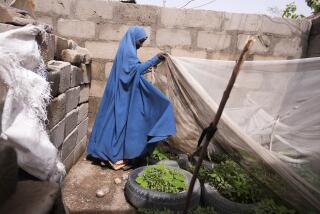He was proud to be the father of an enormous family — until he couldn’t feed them
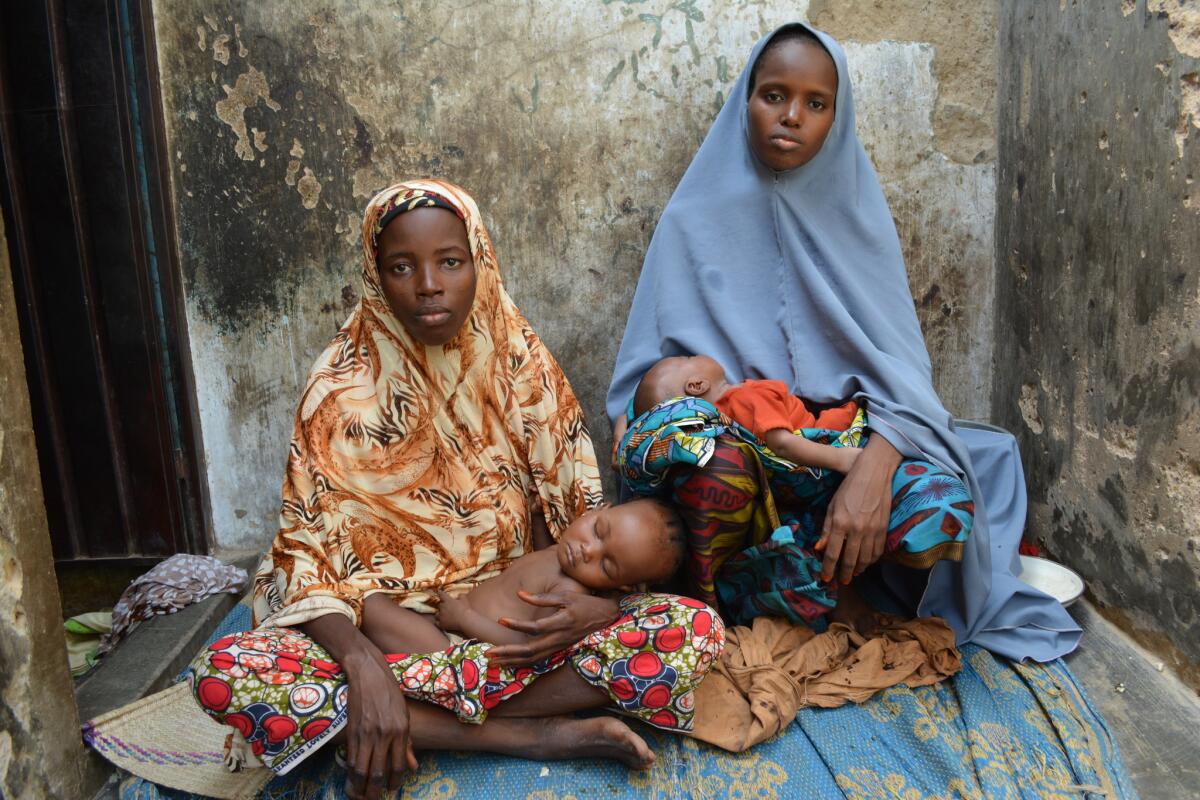
- Share via
Reporting from KANO, Nigeria — To enter Mohammed Umar’s mosquito-infested house, you step over a gutter brimming with sewage.
At dusk two wives and 13 children are crammed in a small dark corridor with no ceiling. Charcoal smoke permeates the air and stings the eyes. The latest baby, Adam, 2 weeks old, moans restlessly; another child coughs incessantly and the call to prayer rings out from a nearby mosque.
Umar is a humble bricklayer in a city with few jobs — but he has four wives, two homes he rents to accommodate them and 17 threadbare children. They spend their long days hungry, waiting for him to bring home a small pocket of money for food.
Umar leaves his small cinder-block house in northwestern Nigeria’s Kano city at dawn and returns late at night, often with just a couple of dollars to feed his family. Then he starts over. He has borrowed for survival, is sinking in debt and, with no money for rent, faces likely eviction.
“Even when I get a job, the money’s not enough to support the family,” he says. “Every time I go to sleep, the thought of the debt comes into my mind, and I can’t get back to sleep.” When the children get sick, there is no money for medicine.
A 2-month-old daughter, Hauwau, died in 2015 because he couldn’t pay a few coins to transport her to a hospital. Struggling to breathe, she slipped away one night.
“I have her picture in my cellphone. I’ve been trying to overcome the grief,” says Umar.
His life is an illustration of what can go wrong in regions where a lack of education intersects with gender inequality and high fertility rates. He is at the sharp end of northwestern Nigeria’s dire health and population statistics: extremely high illiteracy, especially for women and girls; huge families; high rates of infant mortality and heartbreaking rates of chronic or acute malnutrition in children.
Umar’s inability to feed his wives and children adequately could taint them for the rest of their lives.
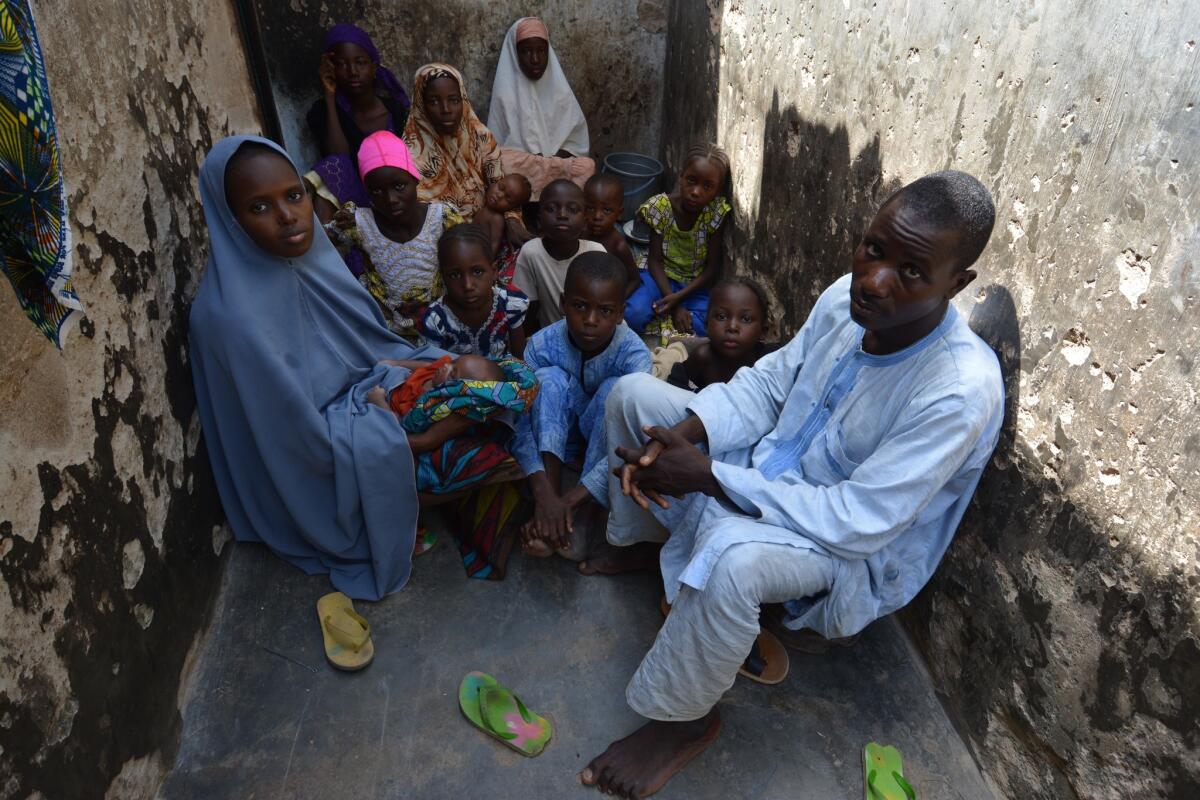
Nearly 80% of children in Kano are stunted, the result of persistent, ongoing malnutrition, which will affect their brain development, learning capacity and, ultimately, the jobs they will have, and leave them more likely to suffer poverty for decades to come. It’s the product of a hidden crisis of chronic malnutrition in northwestern Nigeria that receives less attention than the famine and acute malnutrition afflicting the northeastern part of the country.
How well-fed a child is in the first three years of life is particularly crucial to his or her future, according to a study by Save the Children that found 38% of children in the least developed countries were stunted. They will earn on average 20% less as adults than those who were not similarly afflicted in childhood, it found. With 159 million children stunted worldwide, the cost to the global economy could be $125 billion by 2030.
Umar has no formal education, and only one of his wives went to school. He kept taking wives, and the children kept coming. Like many northern Nigerians, he is fatalistic about his decision to keep on marrying and having children.
“I never thought it would be such a burden for me,” he sighs, looking ahead numbly. “You can’t escape fate. What will happen, will happen. It’s divine destiny.
“People are pushed by passion, just this natural urge, this instinct,” he says.
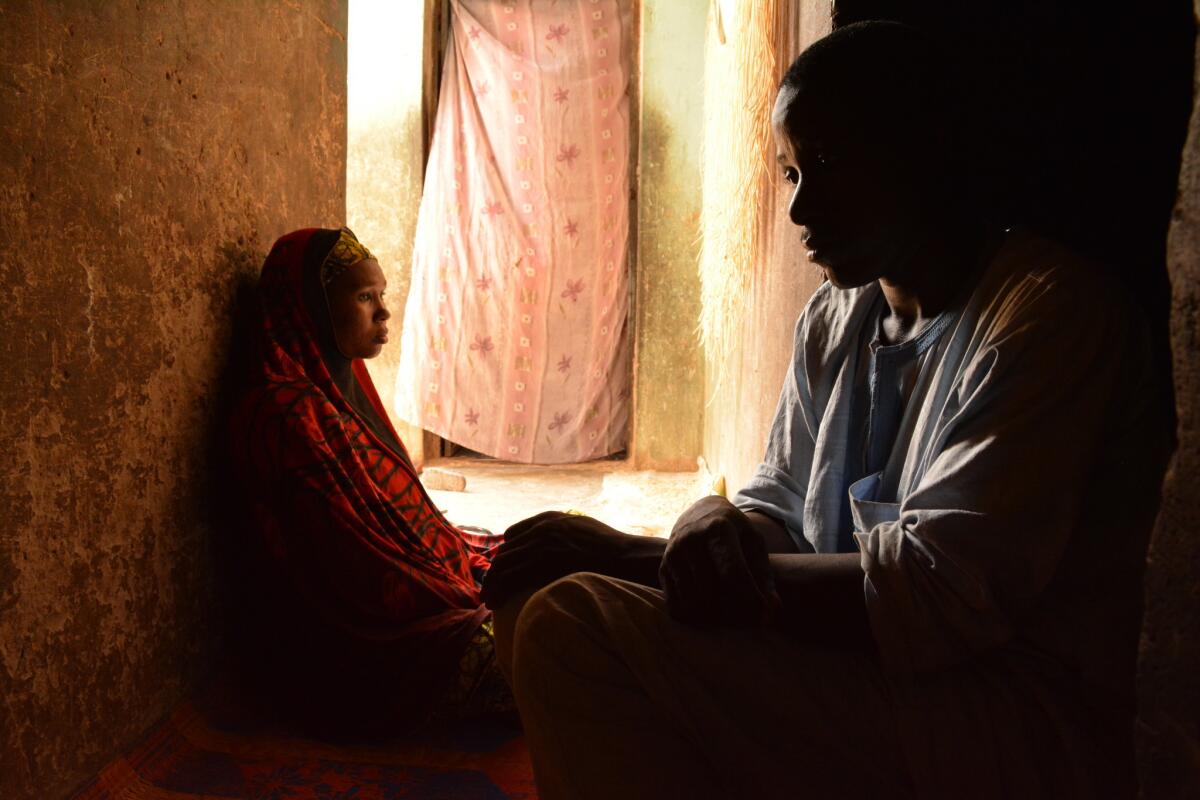
As a boy, his father, a farmer, sent him to an informal Koranic boarding school. The boys there were forced to spend their days begging, whipped by the school cleric if they failed to collect enough. He talked a neighboring bricklayer into letting him learn the trade and by 22 he took his first wife, a cousin, Mainuna Shuaibu, who was 14 at the time and never went to school. Just over a year later, she gave birth to their first son, now 17.
She was illiterate, terrified and homesick, but marrying at that age “was normal” for girls, she said. “If I’d have married later, I would have been considered a spinster.”
Seven years later, Umar upset her by taking a local neighborhood girl, Maryam Adam, then 15, as his second wife. Two years later he angered the first two by marrying a local widow, Jamila Idris. All three despaired when two years later he met another woman, Aisha Samaila, and married her too. Even now, he laughs off their concerns as “typical” female jealousy.
In male-dominated northern Nigeria, poor families are more likely to marry daughters off than to keep them in school, making poverty a looping cycle that endlessly repeats. The inequitable marital roles customary in the region, where most families are traditional, conservative Muslims and women cannot question their husbands, also entrench poverty.
“Women are much more likely than men to be impoverished, deprived of education and opportunities,” according to the United Nations’ sustainable development goals, adopted in September 2015.
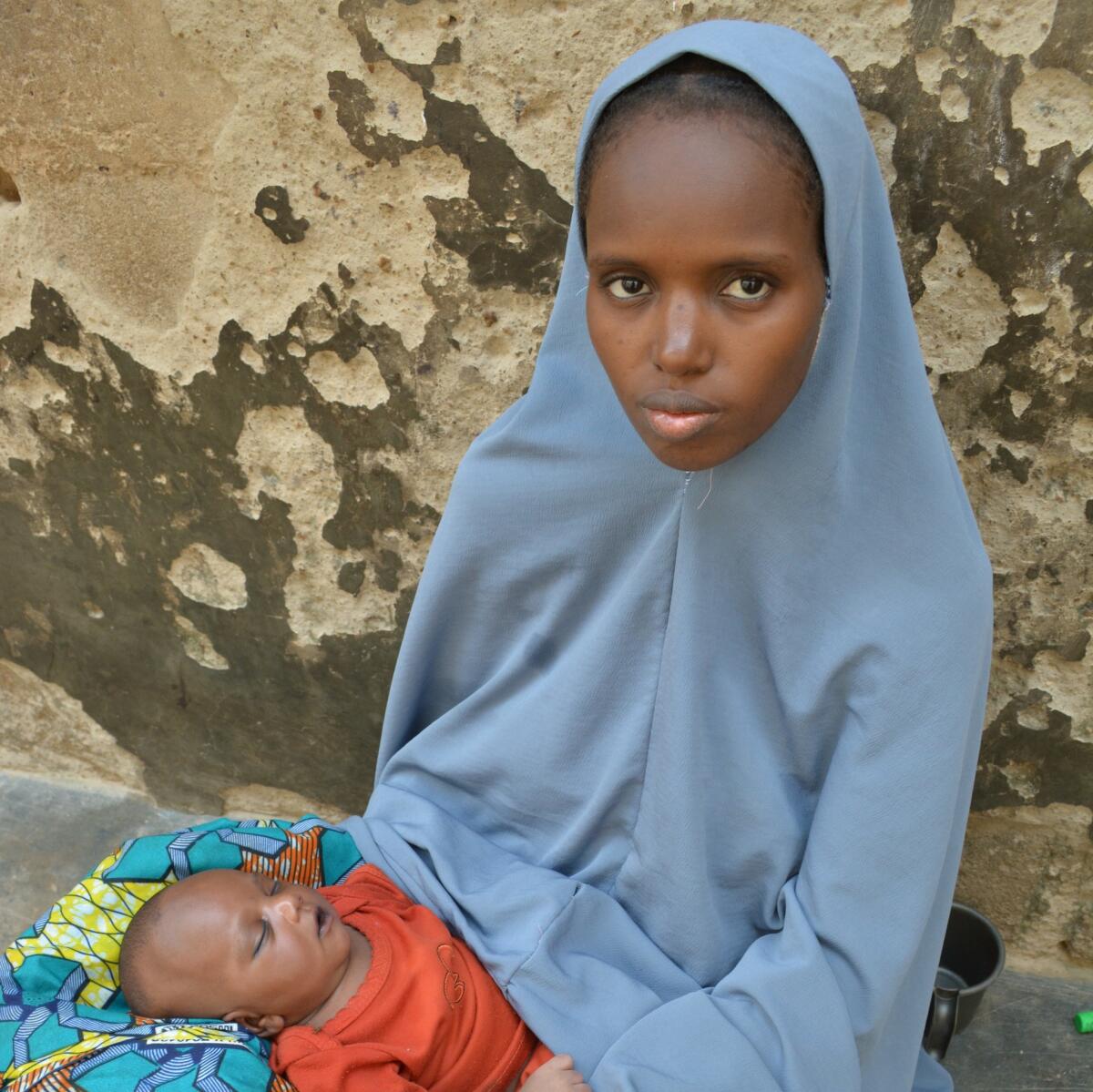
As a child, Maryam Adam, now 25, dreamed of becoming a nurse in a crisp white uniform, but was not allowed to go to school because it would have delayed her marriage. “We weren’t happy that our brothers went to school and we did not, but we couldn’t go against my father’s word. If I’d been able go to school and be educated our lives would be much better.”
Adam warned her husband against marrying a third time.
“It was rash. I told him. But he mistook it as jealousy,” she said.
“That’s what men usually think when a woman cautions them against taking more wives,” she said. “They wouldn’t see the merit of it.”
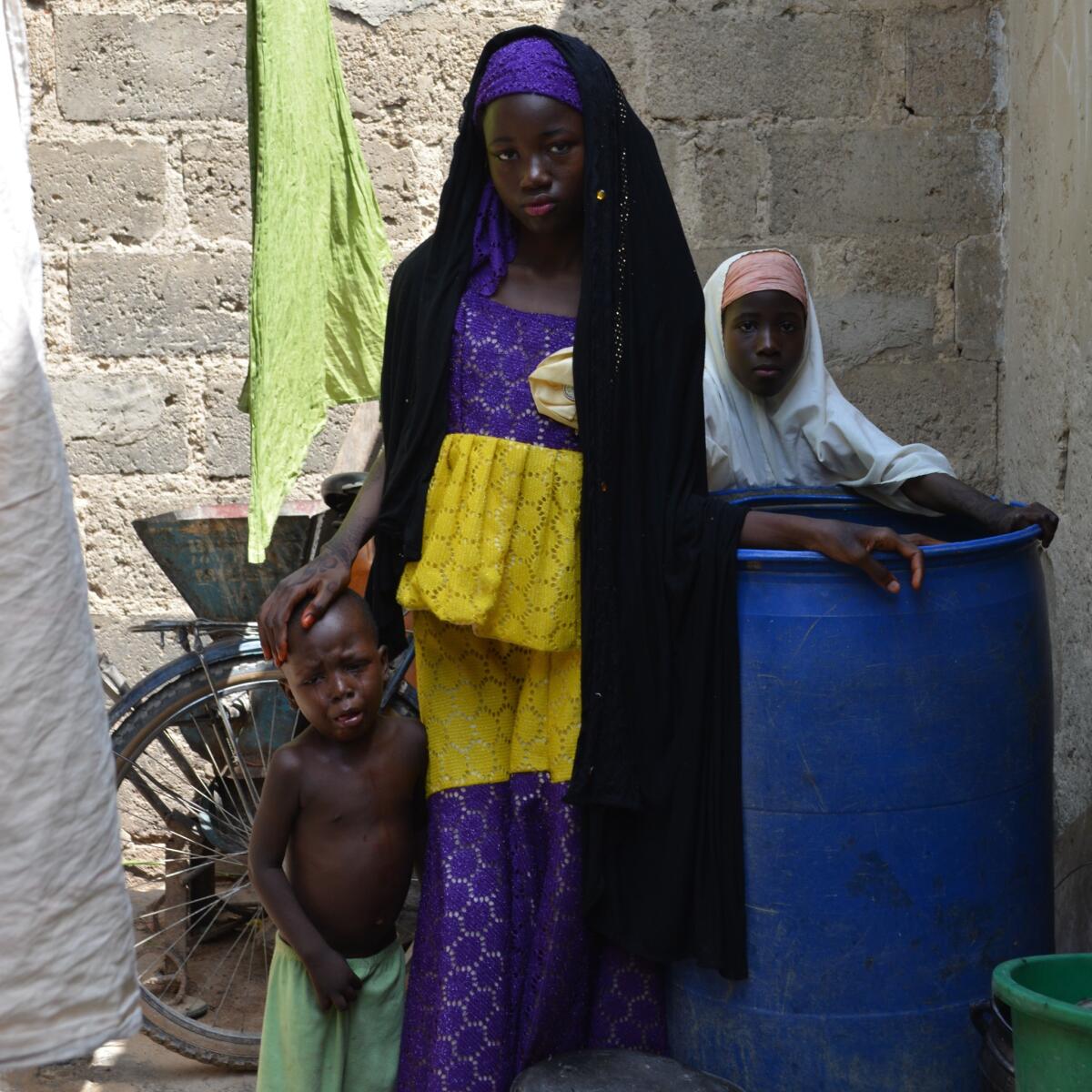
The third wife, Jamila Idris, wanted to caution Umar against taking a fourth wife, but “there was no way for me to advise him because that would be misconstrued as jealousy. I didn’t think anything I said would make a difference.”
For men in northern Nigeria, taking many wives and having large families signify status and success. But the U.N. links its key sustainable development goals of eliminating poverty and hunger to women’s access to family planning and use of contraceptives.
A national health survey by the National Population Commission in 2013 found that just 0.6% of married girls and women ages 15 to 49 in Kano state used contraception, the lowest rate in the country.
If women are able to choose when they have children and how many, “this empowers them to study, work and raise their families out of poverty,” the U.N. said. It also called for an end to child marriage, which limits girls’ education.
The Nigerian fertility rate has eased slightly from more than 6 births per woman three decades ago, to 5.7, according to the population commission. The rates in Western countries range from around 1.4 to 2. In northern Nigeria, however the rate is close to the highest rate on Earth, 7.3%.
Umar has 17 of his own children and supports an 18th, from his third wife’s previous marriage. She sent four children from that marriage to an uncle, but kept the youngest. She has two boys ages 3 and 5 with Umar.
His wives gave birth to all but two of their children at home. The two cases where wives went to the hospital involved life-threatening complications.
Only about 12% of women in northwestern Nigeria have given birth in health facilities or had trained birth attendants present, according to the 2013 population commission survey. The region has the nation’s highest mortality rate for children younger than 5.
Umar fears his children will end up as he did, begging for food on the streets. They already beg from neighbors.
“The older ones can endure, but the younger ones go to neighbors and beg for food because they cannot endure it. There’s a limit to what they can bear,” he says.
Samaila, Umar’s fourth wife, recently walked out with her two children. Umar still takes money to her parents’ village and pleads with her to come home.
“Aisha didn’t have the same patience and endurance as I and the other wives. She’d complain all the time,” said Idris, who lived in the next room from her. “She kept saying, ‘There’s no food. I just can’t live with hunger.’ We’d always try to appeal to her common sense, that nothing lasts and the situation might change.”
If the family is evicted, Umar will try to send his wives back to their parents with the children, although none has the space nor the food to go around.
“That’s what we worry about, day in, day out. What will we do?” says his first wife, Shuaibu. “We are just hoping something will happen. Maybe a big job will come.
“It’s tough as a mother. The younger ones cry when they have no food. My children are starving with nothing to eat.”
This story was reported with a grant from the United Nations Foundation. For more coverage of Sustainable Development Goals issues, go to our Global Development Watch page.
Twitter: @RobynDixon_LAT
ALSO
Iran’s newest fighters are sidewalk vendors, ‘ready to struggle to our last drop of blood’
American man arrested in shooting of U.S. official in Mexico
To cross the front lines in the battle for Mosul, you just hail a cab
More to Read
Sign up for Essential California
The most important California stories and recommendations in your inbox every morning.
You may occasionally receive promotional content from the Los Angeles Times.
